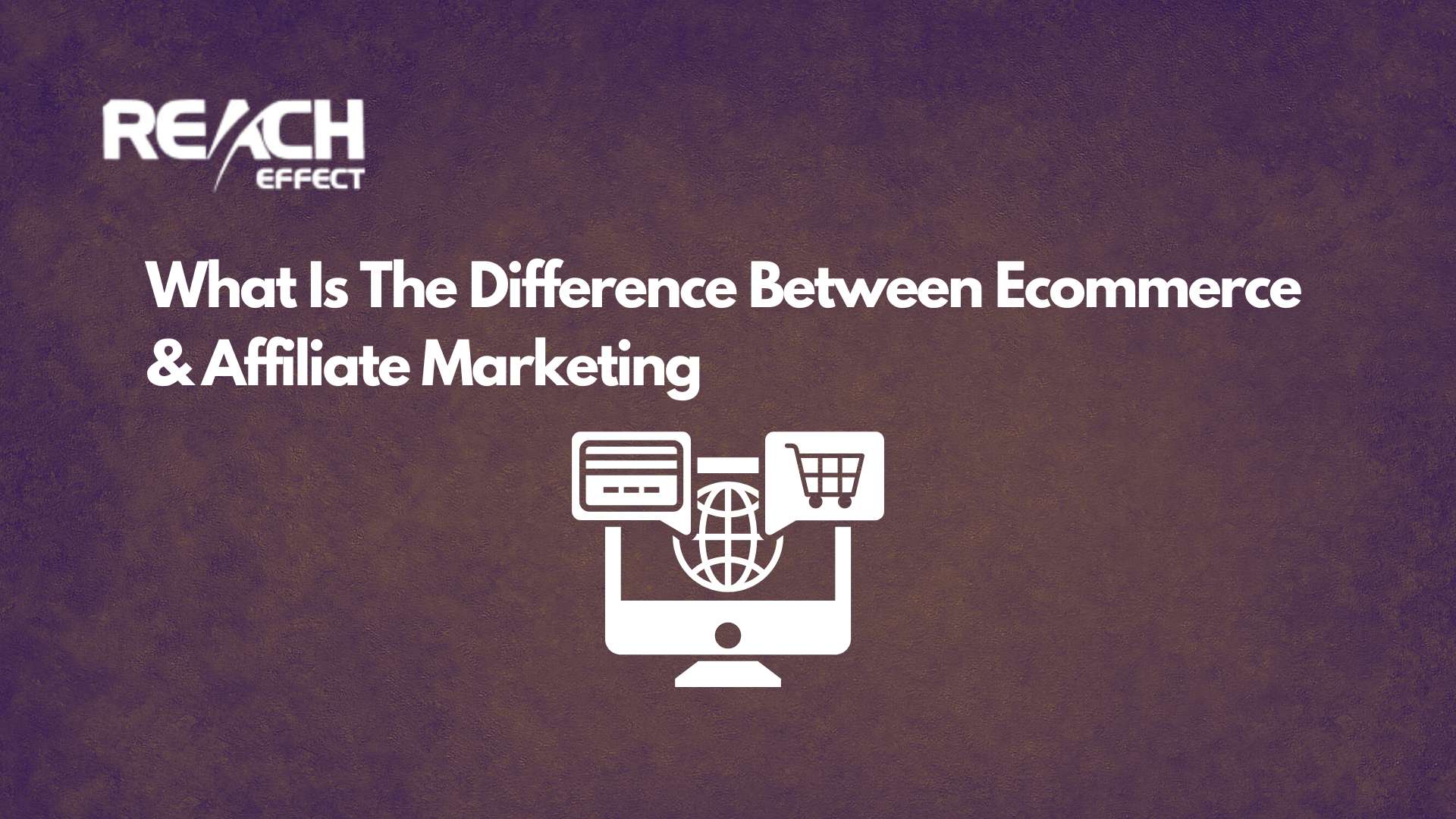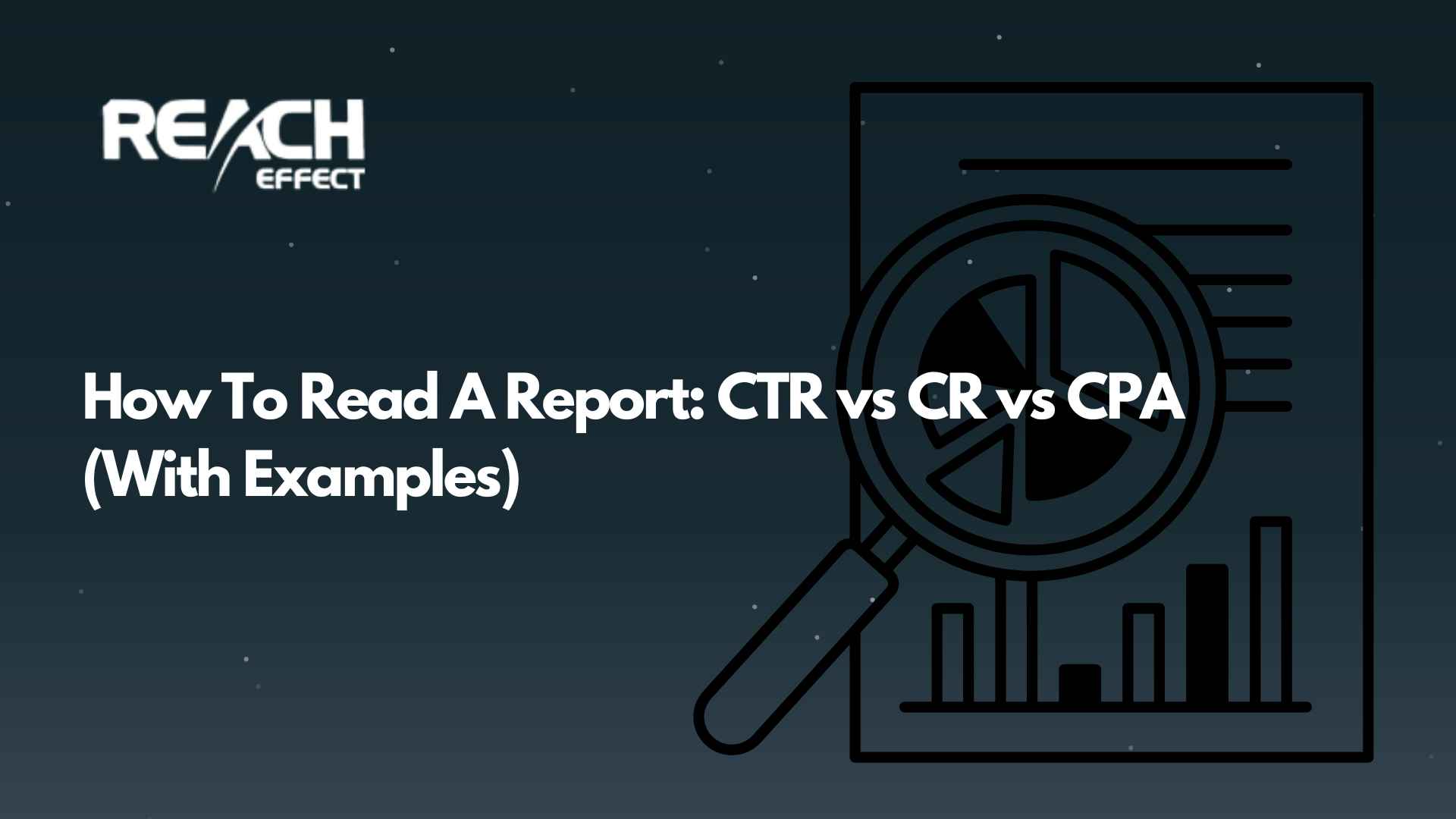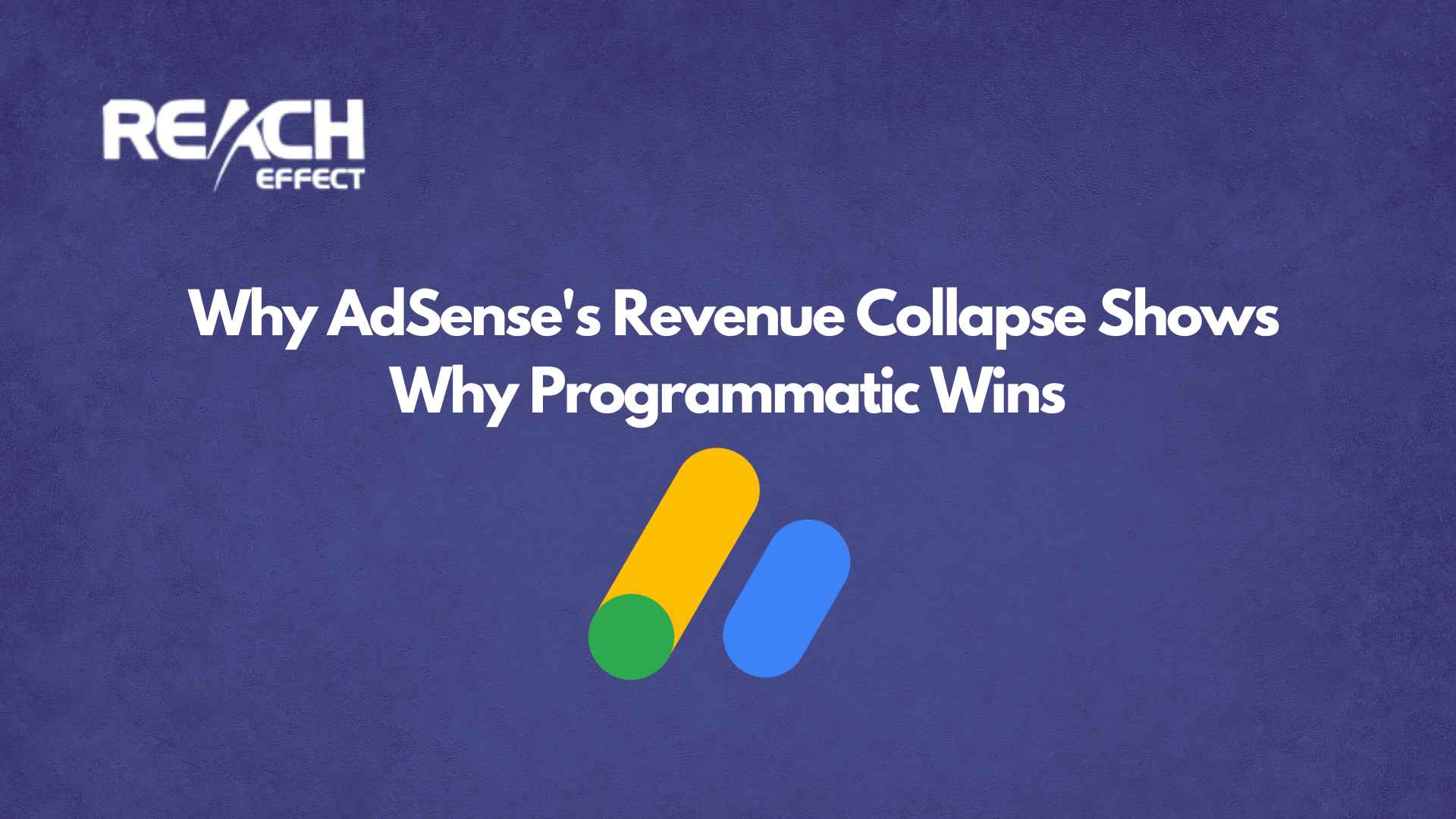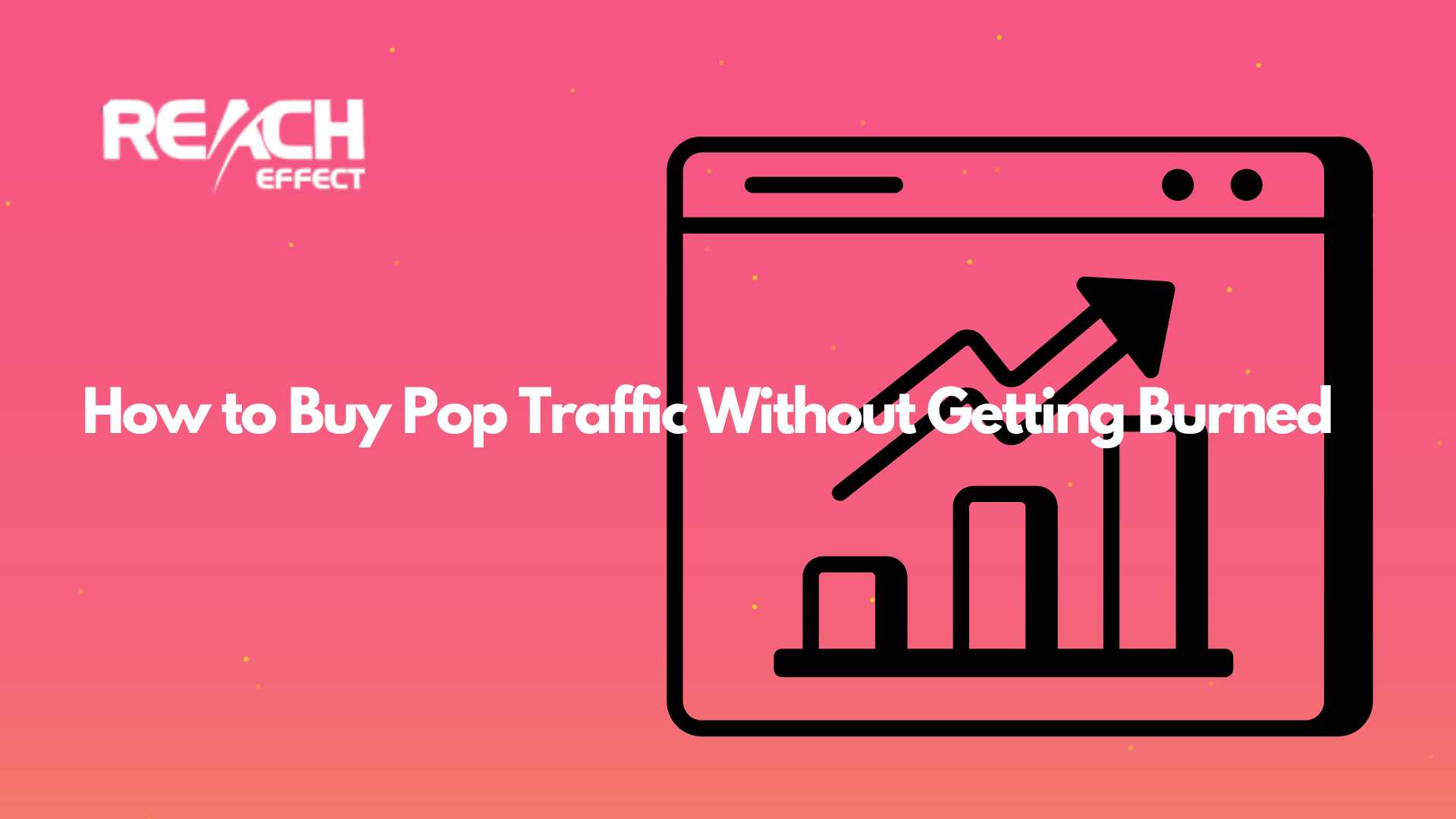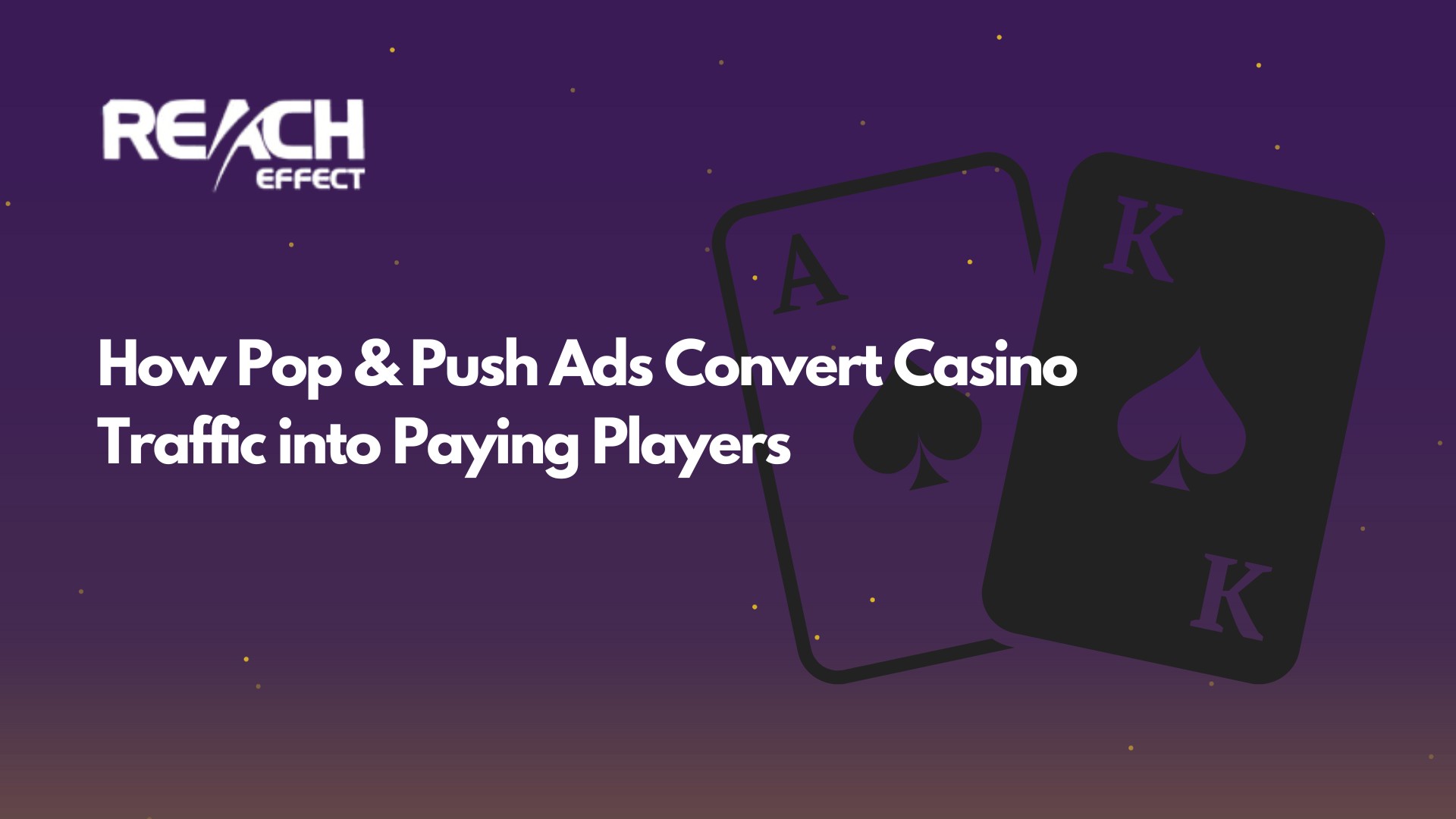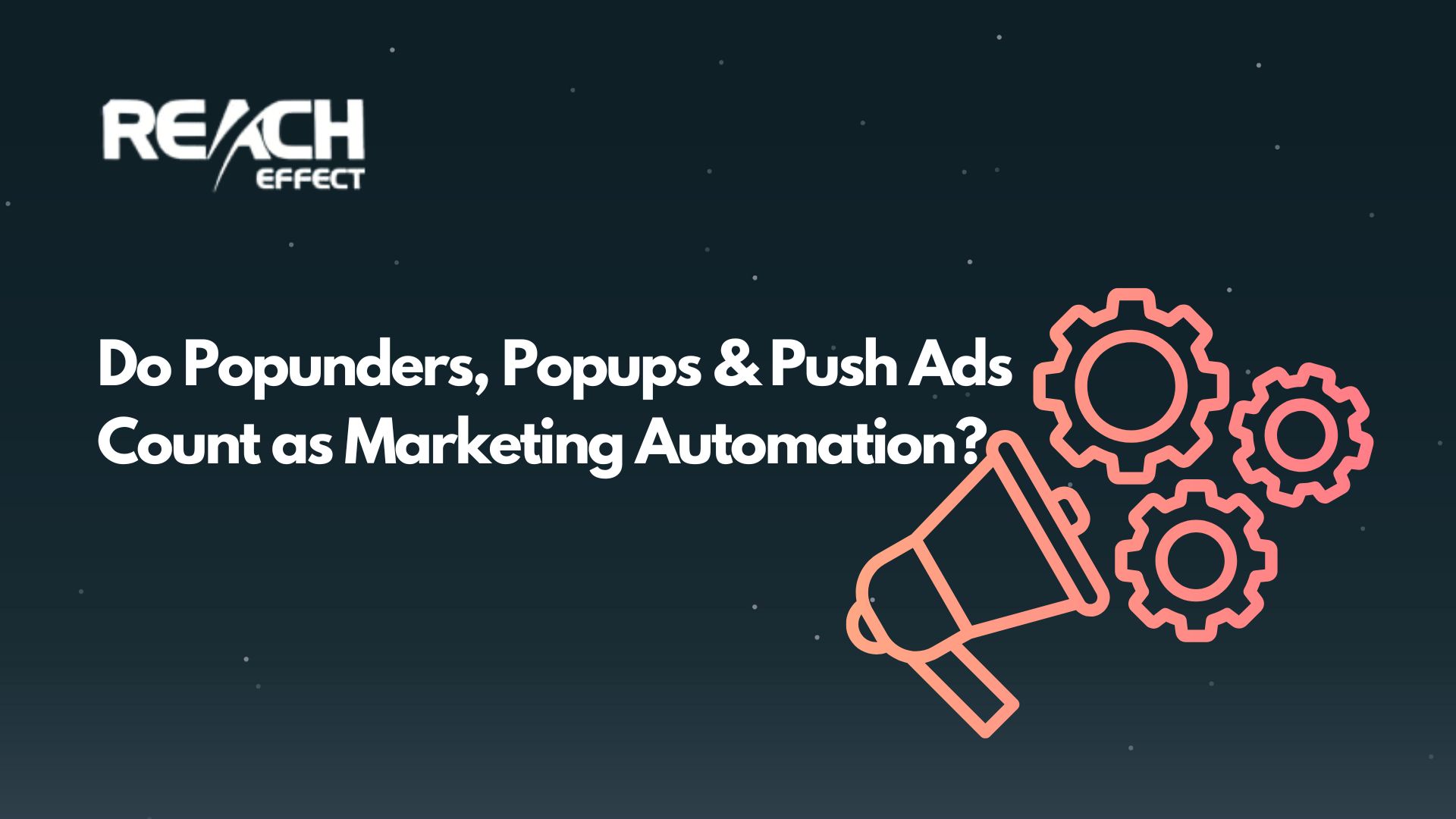When I first started exploring ways to make money online, I kept hearing two terms thrown around: ecommerce and affiliate marketing. At first glance, they seemed pretty similar. Both involve selling products online, both can be done from your laptop, and both have the potential to generate serious income. But as I dug deeper, I realized they’re actually quite different business models, each with its own approach, challenges, and rewards.
If you’re trying to decide which path makes sense for you, or you’re simply curious about what is the difference between ecommerce and affiliate marketing, you’re in the right place. I’m going to walk you through everything you need to know, from the basic concepts to the nitty-gritty details that can make or break your success.
Understanding Ecommerce: Building Your Own Empire
Ecommerce involves selling your own products or services through an online store, where you’re responsible for every aspect of running the business, from sourcing to storage to fulfillment. Think of it as opening a traditional store, but on the internet instead of Main Street.
When you run an ecommerce business, you’re the captain of the ship. You decide what products to sell, how much to charge, how to brand your store, and how to interact with customers. You might create your own products, buy inventory in bulk, or even use a dropshipping model where suppliers handle the storage and shipping for you.
Ecommerce sales are predicted to reach $8.1 trillion in 2026, which represents a 56% growth over the next three years. The market is massive and still expanding rapidly.
Understanding Affiliate Marketing: The Middleman’s Game
Now let me tell you about affiliate marketing, which works completely differently. Affiliate marketers use affiliate tracking links to promote products or services via personal online channels like social media and blogs, earning a commission every time someone clicks those links and makes a purchase.
Think of yourself as a trusted advisor who connects people with products they need. You don’t own any inventory, you don’t handle shipping, and you don’t deal with customer complaints. Your job is pure marketing: create content, build an audience, and recommend products that genuinely help people.
The affiliate marketing industry is booming too. Shopify reports that affiliate campaigns deliver an average return on ad spend of 12:1, significantly outperforming traditional advertising channels. This impressive ROI explains why so many people are jumping into this space.
Key Differences That Actually Matter
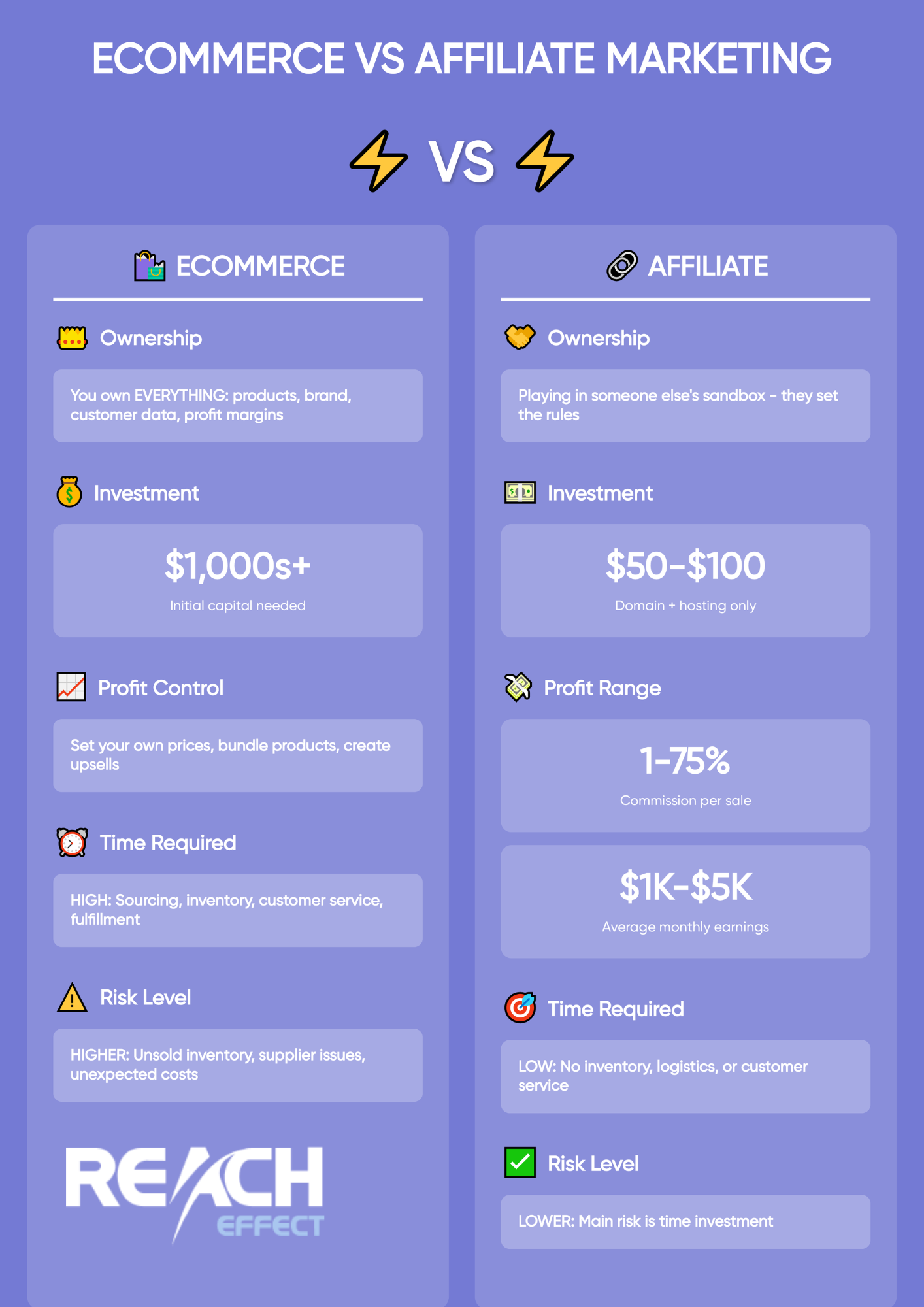
Ownership and Control
This is the biggest distinction between affiliate marketing vs ecommerce. With ecommerce, you own everything: the products, the brand, the customer data, and the profit margins. You set your own prices and can pivot your business strategy whenever you want.
Affiliate marketing gives you full control over your products, your brand, and most importantly, your profit margins, but it comes with higher stakes and complicated operations. With affiliate marketing, you’re playing in someone else’s sandbox. The brand you’re promoting sets the rules, decides the commission rates, and can change their program terms at any time.
Financial Investment Required
Affiliate marketing has zero upfront costs since it’s a performance-based model where you only pay when affiliates generate sales. For someone starting as an affiliate, you can literally begin with just a domain name and hosting, which might cost you $50 to $100 initially.
Ecommerce is a different story. Even with dropshipping (the lowest-cost ecommerce model), you’ll need money for your online store platform, product photography, marketing, and probably some initial inventory or samples. If you’re buying products in bulk, you might need thousands of dollars upfront.
Profit Potential and Margins
Here’s where things get interesting. Affiliates make anywhere from 1% to 75% profit from each sale, with the average affiliate earning between $1,000 and $5,000 per month. The wide range depends heavily on your niche, the products you promote, and your marketing skills.
Ecommerce businesses typically have more control over their margins. You decide your markup, you can bundle products, and you can create upsells and cross-sells that boost your average order value. The ceiling is much higher, but so is the floor if things go wrong.
Time and Effort Investment
Affiliate marketing has very low upfront costs and almost non-existent logistical challenges, with no inventory, logistics, or customer service to worry about. This makes it perfect for someone with a full-time job who wants to build a side income.
Ecommerce demands much more time, especially in the beginning. You’re building a real business with all the moving parts that entails. Expect to spend time on product sourcing, quality control, website optimization, customer support, and handling the inevitable problems that arise.
Risk Assessment
From a risk perspective, affiliate marketing is the safer bet. Your main risk is time investment that doesn’t pay off. You’re not on the hook for unsold inventory or supplier problems.
Ecommerce carries more financial risk. You might invest in products that don’t sell, face supplier issues, or deal with unexpected expenses like return shipping costs or payment processing fees that eat into your margins.
Real-World Applications
Let me paint a picture of how these models work in practice.
The Affiliate Marketing Approach
Imagine you’re passionate about home fitness. You start a blog where you review workout equipment, create exercise guides, and build an email list. You join affiliate programs for companies like Amazon, fitness equipment manufacturers, and supplement brands. When someone clicks your affiliate link and buys a yoga mat, you earn a commission. Your focus is entirely on creating helpful content and driving traffic.
The Ecommerce Approach
Now imagine you notice a gap in the market for eco-friendly yoga mats. You source or manufacture your own line of sustainable yoga products. You build a Shopify store, create compelling product descriptions, invest in product photography, and launch Facebook ads to drive sales. When someone buys, you handle the fulfillment, answer their questions, and hopefully turn them into a repeat customer.
Which Model Fits Your Goals?
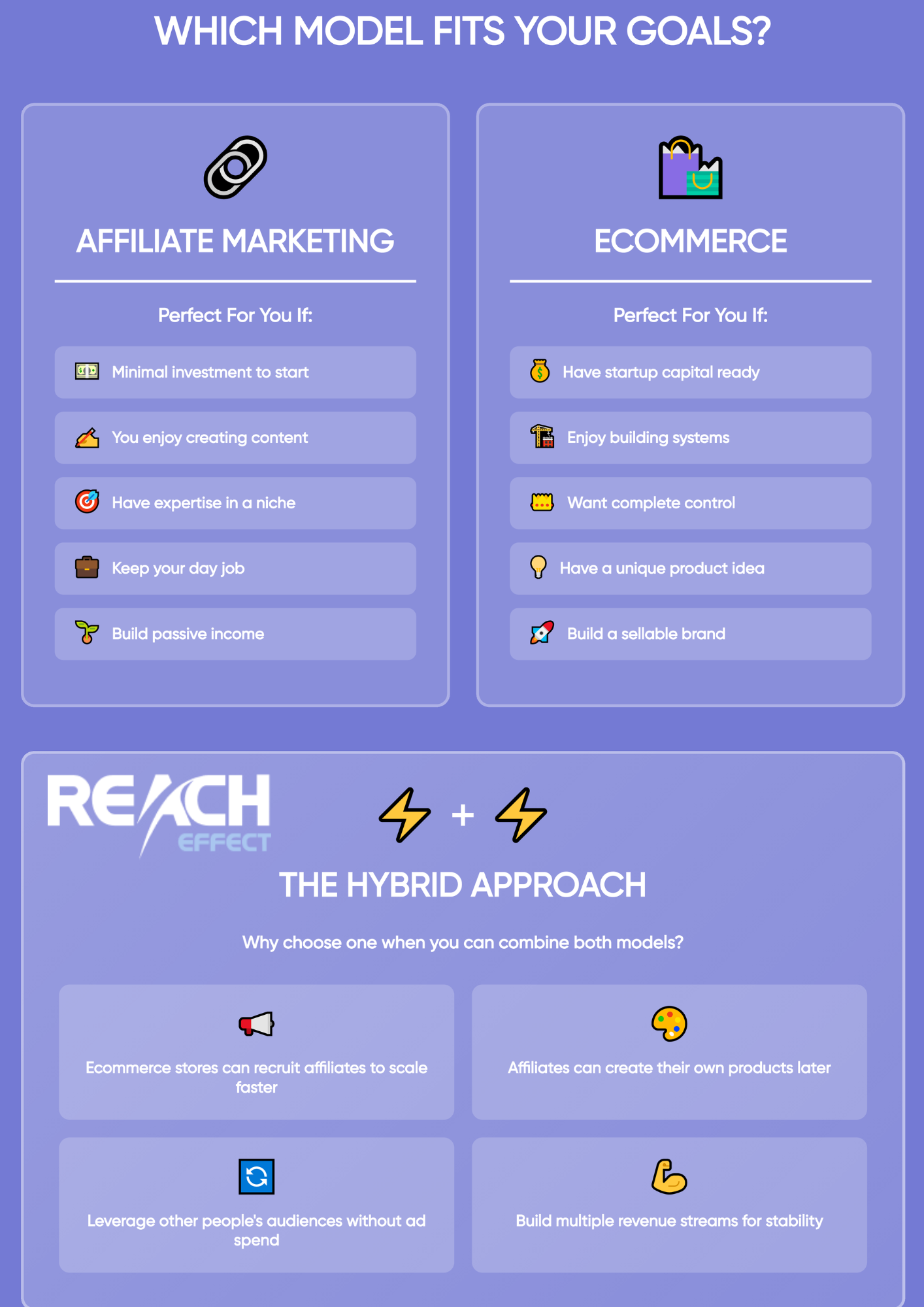
This isn’t about which model is objectively better. It’s about which one aligns with your goals, resources, and personality.
Choose Affiliate Marketing If:
You want to start with minimal investment and can commit to building an audience over time. Given the low startup cost and potential for passive income, affiliate marketing is perfect for those who are new to online business or aren’t ready to make large initial investments. It’s ideal if you enjoy creating content, have expertise in a specific niche, or want to keep your day job while building side income.
Choose Ecommerce If:
You have startup capital to invest, enjoy building systems, and want complete control over your business. Ecommerce makes sense if you have a unique product idea, understand supply chain management, or want to build something you can potentially sell later. The path is steeper, but the potential rewards and satisfaction of building your own brand are significant.
The Hybrid Approach: Why Not Both?
Here’s something many people don’t consider: you can combine these models. One of our recent articles covers the best affiliate marketing solution for Ecommerce. You should check it out!
Ecommerce stores can recruit affiliates to promote their products through affiliate programs, while affiliate sites list other retailers’ products and redirect visitors using affiliate links.
If you start an ecommerce store, launching an affiliate program can help you scale faster without increasing your advertising budget. You leverage other people’s audiences to drive sales. Conversely, successful affiliate marketers sometimes create their own products once they understand their audience’s needs deeply enough.
Common Mistakes to Avoid
From my experience and research, here are the pitfalls I see people fall into:
For Affiliate Marketing:
Don’t promote products just because they have high commission rates. Your audience will smell the desperation, and you’ll lose their trust. Focus on products you genuinely believe in or have used yourself.
Avoid putting all your eggs in one basket. If you only promote Amazon products and they change their commission structure (which they’ve done before), your income takes a hit overnight.
For Ecommerce:
Don’t skimp on product quality to maximize margins. In today’s world of instant reviews and social media, a few bad customer experiences can torpedo your brand before it gets off the ground.
Avoid underestimating the importance of customer service. Your product might be great, but if you’re slow to respond to questions or handle returns poorly, you won’t build the repeat business that makes ecommerce profitable long-term.
Final Thoughts
The difference between ecommerce and affiliate marketing ultimately comes down to this: ecommerce is about building and selling your own products with full control and full responsibility, while affiliate marketing is about connecting audiences with products through content and recommendations.
Neither path is easy, and both require dedication, learning, and persistence. Choosing between affiliate marketing and ecommerce boils down to your personal preferences, resources, and the effort you’re willing to put in, with each having its own set of benefits and challenges that should align with your long-term business goals.
The online business landscape is rich with opportunities. Whether you choose to build your own ecommerce empire, become a trusted affiliate marketer, or blend both approaches, the key is to start, stay consistent, and keep learning. Your path to success might look different from mine, and that’s exactly how it should be.

